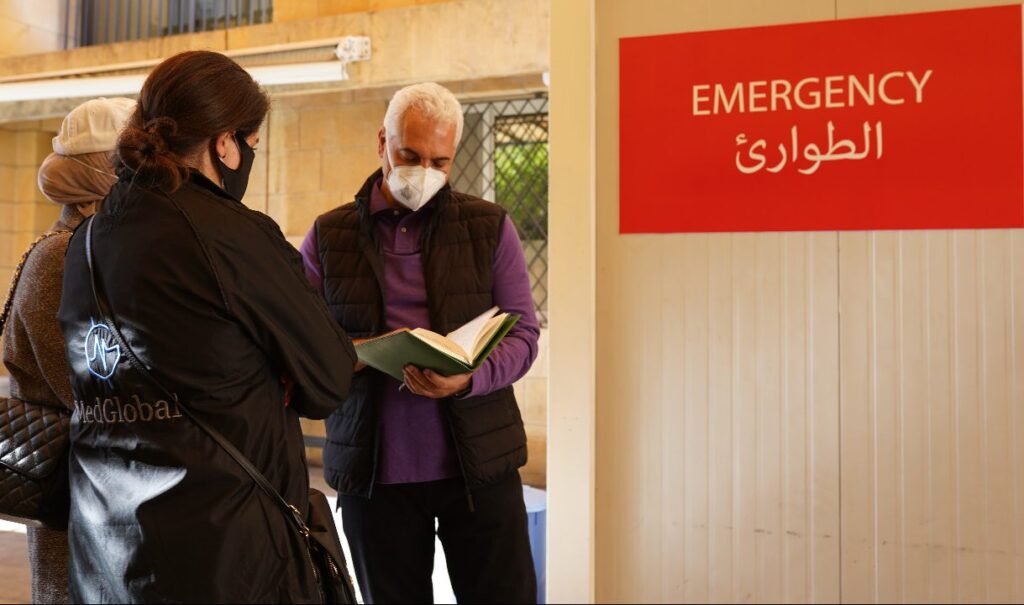Updates & Press
Featured | December 18, 2020
Weekly Humanitarian News Digest – December 1
Author | MedGlobalComms

Each week, we highlight the latest news related to the humanitarian and health crises in our countries of operation: Bangladesh/ Myanmar, Colombia/ Venezuela, Gaza/ Palestinan Territories, Greece, Lebanon, Pakistan, Sudan, Syria, and Yemen. For more frequent updates, make sure to follow us on Facebook, Instagram, and Twitter.
Latest News for December 11 – December 18, 2020
Bangladesh/ Myanmar
Several Rohingya refugees recently taken to Bhasan Char by the Bangladesh government say that they were coerced into moving. The government is currently in the process of relocating 100,000 refugees to Bhasan Char, a silt island vulnerable to extreme weather events, to decrease overcrowding in Cox’s Bazar. Human rights organizations have repeatedly criticized the plan due to a lack of transparency around conditions on the island and a lack of informed consent for the Rohingya brought there. (VICE News)
Colombia/ Venezuela
Colombia’s Health Ministry plans to reach one-third of Colombia’s population with vaccinations in 2021. The elderly, health workers, and people with underlying conditions will be among the first 15 million people vaccinated. The second phase of vaccinations will likely be delayed until 2022 when other essential workers and pregnant women will be vaccinated. Herd immunity, at which point the virus will not be able to effectively spread, is not expected until 2023. (Bloomberg News)
Gaza/ Palestinian Territories
Health workers in Gaza have warned that the health system is under threat of collapsing due to chronic shortages of equipment. Gaza has only 100 ventilators for a population of two million and testing capacity remains dangerously low. On Wednesday, Gaza’s Health Ministry recorded ten deaths and 935 new cases of COVID-19 in a 24-hour period. (Middle East Eye)
Greece
According to a report by the International Rescue Committee, refugees in camps on several Greek islands are showing severe symptoms of mental health problems, including depression, PTSD, and self harm. The report cites inhumane living conditions in overcrowded camps as a major factor in the growing mental health crisis. Refugees have limited access to food, water, and sanitation. COVID-19 lockdowns have further exacerbated conditions for refugees as they struggle with the uncertainty of their asylum applications. (Aljazeera)
Lebanon
Lebanon is in the process of securing 1.5 million COVID-19 vaccines and expects the first batch to arrive in the next two months. The country’s severe economic crisis has created obstacles to acquiring vaccines and many of the nation’s doctors have emigrated. Lebanon’s Health Minister, Hamad Hassan, has called on the UN and NGOs to assist Lebanon with securing more. The minister also announced the planned addition of 200 new ICU beds (700 total) to increase the capacity of Lebanon’s overwhelmed health system. (Reuters)
Pakistan
A recent report by human rights groups found that overcrowding in Pakistan’s prisons worsened during the COVID-19 pandemic. Despite having a capacity to accommodate only 58,000 prisoners, the system currently houses nearly 80,000. COVID-19 testing in prisons is limited and many inmates live in unsanitary conditions, increasing the likelihood of the virus spreading. (Associated Press)
Sudan
Sudan’s Ministry of Health plans to provide 8.4 million COVID-19 vaccines to select groups during the first quarter of 2021. The elderly, people with chronic conditions, and health workers are considered first priority, followed by essential workers. Displaced people and asylum seekers are included in the third tier for vaccinations. (Radio Dabanga)
In the past month, 50,000 Ethiopian refugees have crossed into Sudan to escape violence in Ethiopia’s Tigray region. The UN estimates that the number of Ethiopian refugees in Sudan will grow to 100,000 by June 2021.The flow of refugees has put immense strain on state governments and many of the refugee camps lack adequate food, water, and fuel. Local authorities are also concerned about the spread of COVID-19 and other diseases among refugees living in crowded conditions. (Radio Dabanga)
Syria
According to the UN Emergency Relief Coordinator, Mark Lowcock, the humanitarian situation in Syria is worsening due to a declining economy, COVID-19, and rising food insecurity and malnutrition. Efforts to assist families in Syria through winter are expected to reach only 2.3 million people out of a planned 3 million due to low funding. Humanitarian operations in Northeast Syria are particularly vulnerable due to access issues. (UN News)
Yemen
The humanitarian crisis in Yemen is expected to drastically worsen in 2021 due to the ongoing conflict, widespread hunger, and massive reductions in response funding. According to the UN, 13.5 million Yemenis face acute food insecurity, including 16,500 people suffering famine-like conditions. The response plan for Yemen is only 45% funded, half the amount it had received by the same time last year. (Aljazeera)


